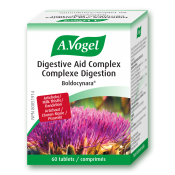How do we know if we have a sluggish digestive system?
The most important factor to determining whether you're battling a sluggish digestive system is knowing your own routine. As the story above shows, many are prone to a bowel movement after their morning coffee. One study found that 29% of participants needed to use the washroom within 20 minutes of their cup of joe. It stimulates contractions through the intestinal muscles with one study showing it makes the colon 60% more active than water. So, imagine drinking your coffee and it isn't until hours later that you feel the urge.
If something occurs outside of your regular routine, it may point to bowels that are moving a little more slowly than normal.
What are the symptoms?
The symptoms range depending on the individual experience, but more common ones include:
- bloating,
- constipation,
- pain in the abdomen,
- fluctuations in weight,
- and potentially even bleeding.
In the even that you experience sudden bleeding or acute pain, it's always best to get the opinion of your registered health care professional to rule out any severe conditions.
What is involved in the process of digestion?
From the moment you catch a whiff of the smells drifting from the kitchen, the process of digestion has begun. The mouth starts to fill with digestive enzymes, the stomach acid starts churning and the bowels begin to move things along. This complex dance can be impacted by countless factors, so understanding how we can best find relief is a good way to start.
What are some of the ways I can find relief?
- Drink more water. The colon extracts water from stool, helping it to 'solidify' more in the colon to provide an easy bowel movement. When the body is dehydrated, the colon may reabsorb more water from the stool to compensate. This causes it to become firm and potentially slows its movement through the digestive tract.
- Eat more fibre. This is a critical piece of the overall digestive picture with fibre helping to bulk the stool and ease its passage through the colon. It also has additional benefits including regulating blood sugar, providing prebiotic benefits, and reducing your risk of type 2 diabetes and heart disease.
- Manage stress. There is a large connection between stress and the gut, especially when you look at conditions like irritable bowel syndrome (IBS). Authors in one fairly recent review note that, "Evidence from both clinical and experimental studies showed that psychological stress, acute or chronic, occurring in early life or adulthood, has marked impact on intestinal sensitivity, motility, secretion and permeability...". Therefore, finding ways to relax and developing healthy coping mechanisms can ensure a happy gut for years to come.
- Exercise. We are well aware that exercise helps to promote blood flow around the body. This includes directing blood flow and promoting circulation through the digestive system to help promote peristalsis in the gut. Now this is where we consider which form of exercise is best – doing a 30 minute high-intensity interval training right after a meal may not leave you feeling your best. A light walk after eating has consistently been shown to help support digestive and metabolic processes. It can help regulate blood pressure, reduce systolic readings by almost 13% or 21 points. It can also promote weight loss, reduce risk of heart disease and help manage blood sugars.
- Consider symptomatic relief. Formulas like that of Boldocynara (Digestive Aid Complex) are a complex of artichoke, milk thistle, boldo, and dandelion. The herbs have many benefits including that of potent liver protectors and helping to reduce fasting blood glucose levels and HbA1c in diabetics, as well as reducing total cholesterol and LDL cholesterol.
- Avoid certain foods. This is another part of 'know your own body' as certain individuals react poorly to trigger foods. Perhaps you feel bloated after a heavy meal of chickpeas and beans, or maybe nightshades such as bell peppers lead to flatulence. Keeping a food diary is a great way to track which foods are causing you grief. Then you can work with your dietician or naturopathic doctor to see whether something like an elimination diet is the best course of action for your health.
- Coffee. While coffee use differs across all individuals, it may be a way to speed up digestion beyond a bowel movement. It has been shown to influence the release of stomach acid and the digestive hormones gastrin and cholecystokinin (CCK). Both gastrin and CCK play a part in the digestion of fats and proteins through encouraging the secretion of stomach acid and bile respectively.
This article does not provide medical advice and is intended for informational purposes only. It is not a substitute for professional medical advice, diagnosis or treatment.
References:
https://www.ncbi.nlm.nih.gov/pmc/articles/PMC4202343/
https://www.ncbi.nlm.nih.gov/pmc/articles/PMC5763991/
https://www.ncbi.nlm.nih.gov/pmc/articles/PMC6119598/
https://pubmed.ncbi.nlm.nih.gov/2338272/
https://pubmed.ncbi.nlm.nih.gov/3745848/
https://pubmed.ncbi.nlm.nih.gov/9581985/
https://pubmed.ncbi.nlm.nih.gov/10499460/
https://pubmed.ncbi.nlm.nih.gov/16915025/
https://pubmed.ncbi.nlm.nih.gov/18350336/
https://pubmed.ncbi.nlm.nih.gov/22089363/
https://pubmed.ncbi.nlm.nih.gov/23609775/
https://pubmed.ncbi.nlm.nih.gov/25339800/
https://pubmed.ncbi.nlm.nih.gov/26222930/
https://pubmed.ncbi.nlm.nih.gov/26925050/
https://pubmed.ncbi.nlm.nih.gov/27747394/





